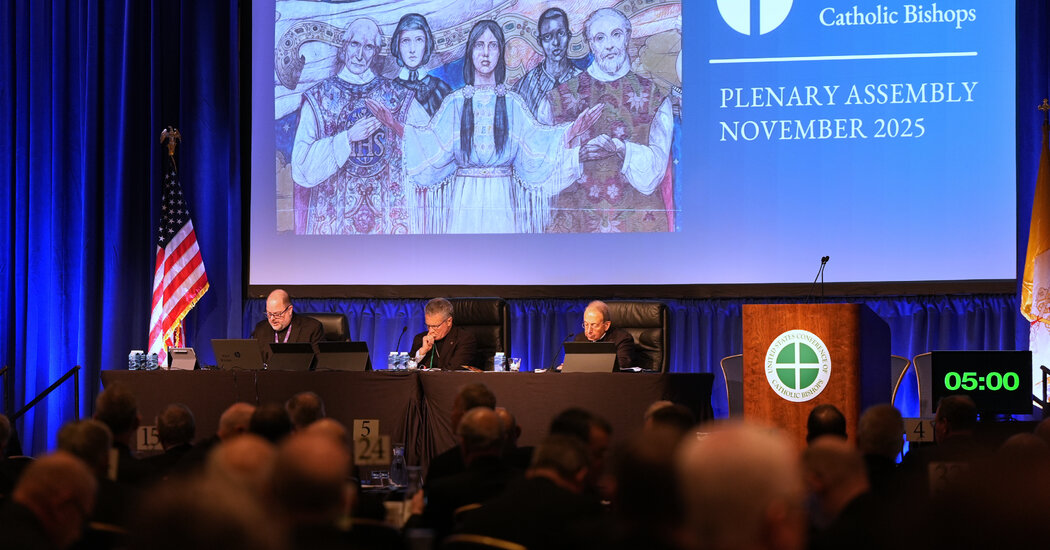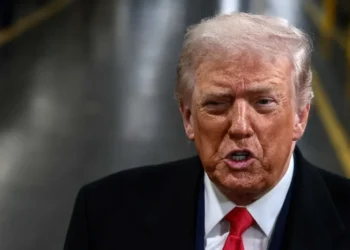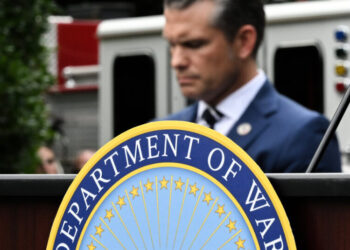
America’s Roman Catholic bishops issued a rare statement on Wednesday in support of immigrants, their most forceful collective action yet that rebukes the Trump administration’s aggressive deportation campaign.
The statement, which passed in a near unanimous vote at the bishops’ annual conference in Baltimore, did not call out President Trump, or any politician, by name. But it admonished many of the administration’s tactics and presented a united moral case that the Catholic Church in America objects in the strongest terms to the administration’s actions.
“We as Catholic bishops love our country and pray for its peace and prosperity,” the statement said. “For this very reason, we feel compelled now in this environment to raise our voices in defense of God-given human dignity.”
The bishops, who were often divided by American politics in the Pope Francis era, showed a united front in standing behind Pope Leo XIV, the first pope from the United States, who has spoken out for immigrants and urged U.S. bishops to do the same.
The statement, called a special message, is a rare pastoral document that the bishops can issue only at their annual meeting, in order to address pressing circumstances of the day.
The last time they issued one was in 2013, in opposition to the contraceptive coverage mandate of the Affordable Care Act under President Barack Obama.
“We oppose the indiscriminate mass deportation of people,” the statement on Wednesday said. “We pray for an end to dehumanizing rhetoric and violence, whether directed at immigrants or at law enforcement. We pray that the Lord may guide the leaders of our nation, and we are grateful for past and present opportunities to dialogue with public and elected officials.”
For months, Catholic bishops have pushed back against the federal actions. Prelates have accompanied migrants to courthouses and protested Mr. Trump’s domestic policy bill in Congress. But this action sends a particularly strong message not only to the administration, which includes many high-profile Catholics, but also to the millions of the church’s immigrant families.
The statement outlined a litany of concerns, which many bishops see as more pastoral than political.
“We are disturbed when we see among our people a climate of fear and anxiety around questions of profiling and immigration enforcement,” it said. “We are saddened by the state of contemporary debate and the vilification of immigrants. We are concerned about the conditions in detention centers and the lack of access to pastoral care.
“We lament that some immigrants in the United States have arbitrarily lost their legal status. We are troubled by threats against the sanctity of houses of worship and the special nature of hospitals and schools. We are grieved when we meet parents who fear being detained when taking their children to school and when we try to console family members who have already been separated from their loved ones.”
The statement overwhelmingly passed, with 216 anonymous votes in favor. Five bishops voted no, and three abstained.
Before the vote, Archbishop Paul S. Coakley of Oklahoma City, the newly elected president of the United States Conference of Catholic Bishops, told the room, “I am strongly in support of it.”
Pope Leo expressed a specific desire for the bishops to give a united statement on the issue last month, when Bishop Mark J. Seitz of El Paso hand-delivered some 100 letters to him from immigrants.
After a full day of public meetings in Baltimore on Tuesday, bishops huddled privately and discussed what to include in the statement for five hours. Some worried that a statement could create backlash from the White House, on issues like religious worker visas, that the bishops are trying to address.
But unlike some previous annual gatherings, this year, on this issue, the bishops presented a largely united public front.
Cardinal Blase J. Cupich of Chicago, where federal agents have conducted immigration raids for weeks, praised the statement’s near-unanimous support.
On the floor, he had suggested an amendment to make explicit that the bishops opposed the indiscriminate, mass deportation of people. It was quickly approved.
“This is a time of really reflecting on what’s happening, and to not be afraid to respond to the need to defend the dignity of people,” he said in an interview.
Some prelates, like Bishop Oscar Cantú of San Jose, Calif., wished the statement was even stronger.
But the amendment from Cardinal Cupich “really gave the document gravitas,” said Archbishop Thomas G. Wenski of Miami, who had strongly criticized the Trump administration for its “Alligator Alcatraz” detention center. This summer, he drove there on a Harley-Davidson with the Knights on Bikes, a motorcycle ministry, to pray the rosary at its entrance.
On Wednesday afternoon, as the bishops discussed the final amendments to the statement, Bishop José María Garcia-Maldonado came to a microphone on the floor.
As a new bishop, this was his first bishops conference, he told the room. He asked that the statement speak not only to migrant families but also to immigrant priests like him.
“As a migrant person coming from Mexico to the United States, for me and my whole family, thank you for this,” he said.
Elizabeth Dias is The Times’s national religion correspondent, covering faith, politics and values.
The post Catholic Bishops Issue Rare Statement Objecting to U.S. Immigration Tactics appeared first on New York Times.



